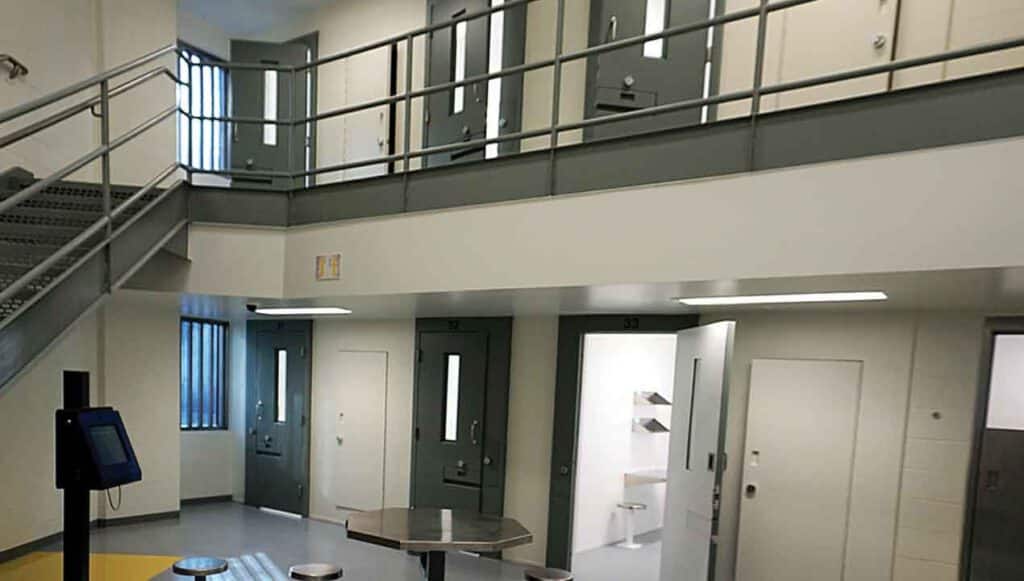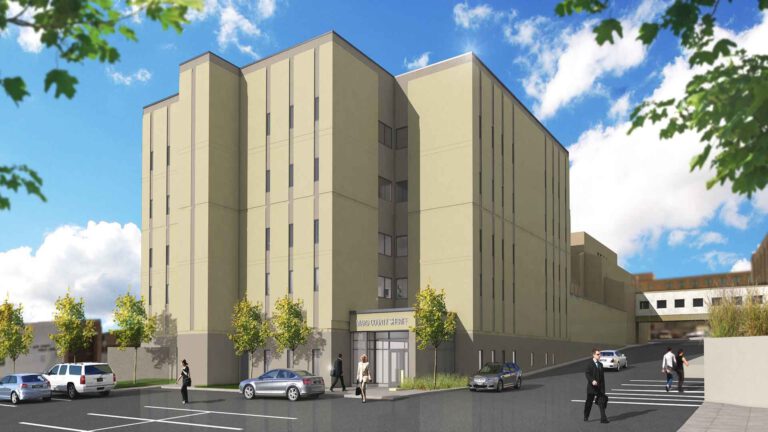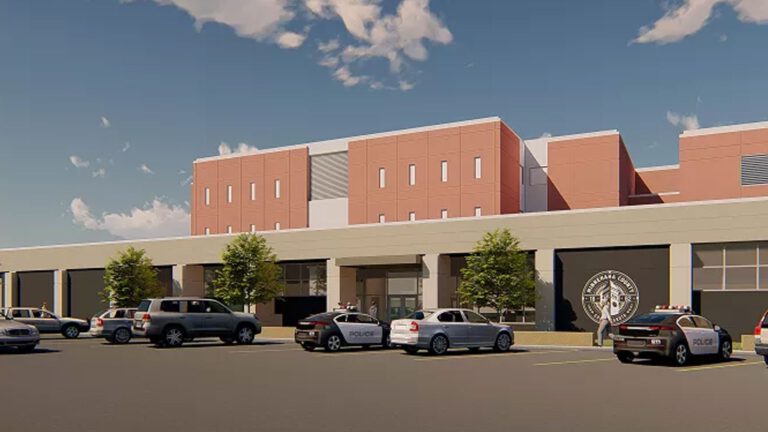Ward County cut the ribbon Monday on a jail expansion that will begin taking its first inmates Dec. 15.
Jail staff have been training to operate the new, 200-bed Ward County Detention Center, and the Ward County Sheriff’s Office has relocated into the building, which is attached to the downtown Minot jail building constructed in the early 1980s.
The new construction was completed well ahead of a June 1, 2018, deadline. The official completion date was Nov. 3.
“This job was set up for success before we even put a shovel in the ground,” said Brian Kunz with Adolfson & Peterson Construction, the project manager. “We have been ahead of schedule because of the good decisions that were made by everyone.”
He credited teamwork from his firm’s employees, subcontractors, JLG Architects, Ward County officials and voters for getting the job done.
In 2012, voters approved a 10-year, half percent sales tax to generate $39.3 million for building projects. The largest share of money, $15.3 million, was to construct a county office building, and another $10.5 million would pay for improvements and expansion at the jail. The county estimated to spend $3.5 million to remodel the present Courthouse. The final $10 million was for roads and other infrastructure.
Then costs rose, and the county went back to ask voters for another $37 million in 2015, using sales tax collections through December 2022. Voters approved the plan, and construction on an estimated $40 million jail expansion began that fall.
Along with finishing early, costs are shaping up to be less than projected. The new construction came in below cost, and depending on how the remodeling of the 103-bed original jail goes, total costs could be less than the current $39 million estimate.
The remodeling will include a new elevator. Reconstruction is currently in progress on the kitchen. Sheriff Bob Barnard said plans are to restructure cell use to provide some single occupancy in the original jail for inmates posing detoxification or potential suicide issues.
Total maximum occupancy would be 289 inmates once the entire jail project is completed.
“It’s a big day for taxpayers of Ward County,” County Commission Chairman Larry Louser said.
He said the county has had to house about 15 inmates a day in other jails because of lack of space in Minot. At a housing cost of $75 a day, Ward County will save around $250,000 in finishing the jail expansion seven months early, he said. In addition to housing, the county incurs costs in deputy time and transportation to transport inmates between Ward County and outside jails.
Sheriff Bob Barnard noted the average jail stay is 8.1 days. The jail can house inmates facing sentences up to a year. However, Barnard said some inmates have stayed longer if being held for trial.
Jail staff are able to monitor inmates from a central control station through one-way windows into cellblocks and exercise rooms. Each cellblock has cable television, tables and seats, phones and a kiosk where inmates can make video calls or order snack items. The kiosks are operated by TurnKey Corrections, which charges inmates for its services.
Face-to-face visitations will be allowed only for meetings with clergy or attorneys.
The jail expansion also includes a loading dock with entrance on the north side and an interactive television room for remote court appearances by inmates.
See or stay
Tours and an overnight stay are among opportunities for county residents to see the inside of the new Ward County Detention Center.
Public tours are scheduled for next Monday from 3 to 6 p.m. Entrance to the jail is on the north side.
The Ward County Sheriff’s Office also is taking applications from residents interested in becoming the first to try out the new jail’s accommodations while raising money for the Domestic Violence Crisis Center. Participants will undergo mock arrest and booking on Dec. 1. Officers will transport them to the jail, where they don orange jumpsuits to spend the night. They will be served an evening meal and breakfast before release.
The $50 cost paid by each participant will be matched by the St. Joseph’s Community Health Foundation to provide a $100 donation to the crisis center.
As of Monday, 22 people had signed up. There is a limit of 50 participants.





